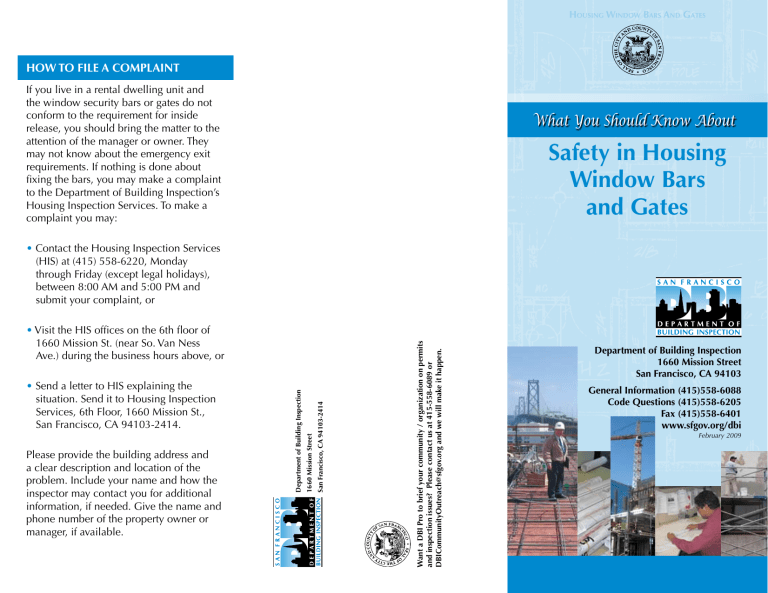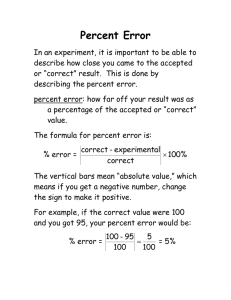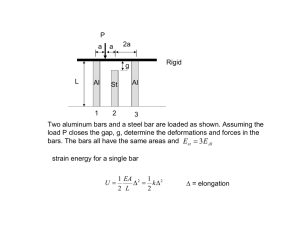Safety in Housing Window Bars and Gates

HOW TO FIle A COMPlAInT
If you live in a rental dwelling unit and the window security bars or gates do not conform to the requirement for inside release, you should bring the matter to the attention of the manager or owner. They may not know about the emergency exit requirements. If nothing is done about fixing the bars, you may make a complaint to the Department of Building Inspection’s
Housing Inspection Services. To make a complaint you may:
• Contact the Housing Inspection Services
(HIS) at (415) 558-6220, Monday through Friday (except legal holidays), between 8:00 AM and 5:00 PM and submit your complaint, or
• Visit the HIS offices on the 6th floor of
1660 Mission St. (near So. Van Ness
Ave.) during the business hours above, or
• Send a letter to HIS explaining the situation. Send it to Housing Inspection
Services, 6th Floor, 1660 Mission St.,
San Francisco, CA 94103-2414.
Please provide the building address and a clear description and location of the problem. Include your name and how the inspector may contact you for additional information, if needed. Give the name and phone number of the property owner or manager, if available.
H ousing
W indoW
B ars
a nd
g ates
What You Should Know About
Safety in Housing
Window Bars and Gates
Department of Building Inspection
1660 Mission Street
San Francisco, CA 94103
General Information (415)558-6088
Code Questions (415)558-6205
Fax (415)558-6401 www.sfgov.org/dbi
February 2009
WInDOW BArS AnD DOOr GrIlleS
Residential buildings, including houses, condominiums, apartments, or tourist and residential hotels that have security bars over sleeping room windows are required to have those bars openable over at least one properly sized and located window to give people a way to escape or be rescued in case of a fire.
To meet the need for both security and fire safety, existing bars on one window must be replaced or altered to make them openable from inside the room. An approved release mechanism on the inside should unlatch the bars without the use of a key, special knowledge or effort.
Required exit doors must be openable from the inside without an electric buzzer or a key.
This applies retroactively to all residential buildings in San Francisco.
WInDOWS
One window in each room used for sleeping in residential buildings must be openable for emergency escape or rescue. This requirement also applies to Tourist Hotels and Residential Hotels.
NOTE: Security bars must not restrict the openable area of the window.
• It applies to windows in basements and all sleeping rooms below the fourth floor.
Sleeping rooms are bedrooms and other rooms that may be used regularly for sleeping such as a living room with a fold-out bed.
• An approved release mechanism to open window bars over a sleeping room window may operate by foot pedal, push plate, pull lever, twist lever, etc. The release mechanism and its operation shall be obvious so as not to require “special knowledge.” The release may not be locked or need a tool to operate.
• An alarm to notify when the safety bars are unlatched is O.K.
• A window release mechanism may not be hidden by furnishings.
Openable window bars are not required in a sleeping room that also contains a door opening from that room directly to the outside.
DOOrS AnD GATeS
Security gates have the same requirements as doors – they must be able to operate from the inside without a key or an electric latch. A key or electric buzzer to enter is
O.K. Required exit doors and gates must be operable from their interior side for emergency exiting: without using electricity
(buzzer), without using a key, or any special knowledge or effort.
The gate or door lock must have a manual latch on the interior side for emergency exiting. If there is an existing lock which requires a key to operate the lock from the inside, the lock must be refitted with a turn latch or a handle on the interior side. This may require installing a security device to prevent intruders from reaching through the grille and unlatching the grille.
CHIlDren’S USe
It is very important that children be shown the operation of window bars and gates for their safety.
The design selected must not require more force than young children can apply to open the bars or gates.
PerMITS
A building permit is required to install new bars over windows and new gates.
A permit will not be required to alter or replace existing bars or grilles previously installed with permit, to be openable from inside the room if the building owner submits an affidavit to Housing Inspection
Services Division stating the work has been done. For an apartment, a housing inspector will verify compliance during a regularly scheduled inspection.
SMOke AlArMS
Installation or retrofitting of window bars or gates with a valuation or $1,000 or more triggers code requirements for a residential building to have smoke alarms installed in bedrooms, in other rooms used for sleeping, and in the hallways leading to those rooms. The alarms may be battery operated, except in new buildings.



